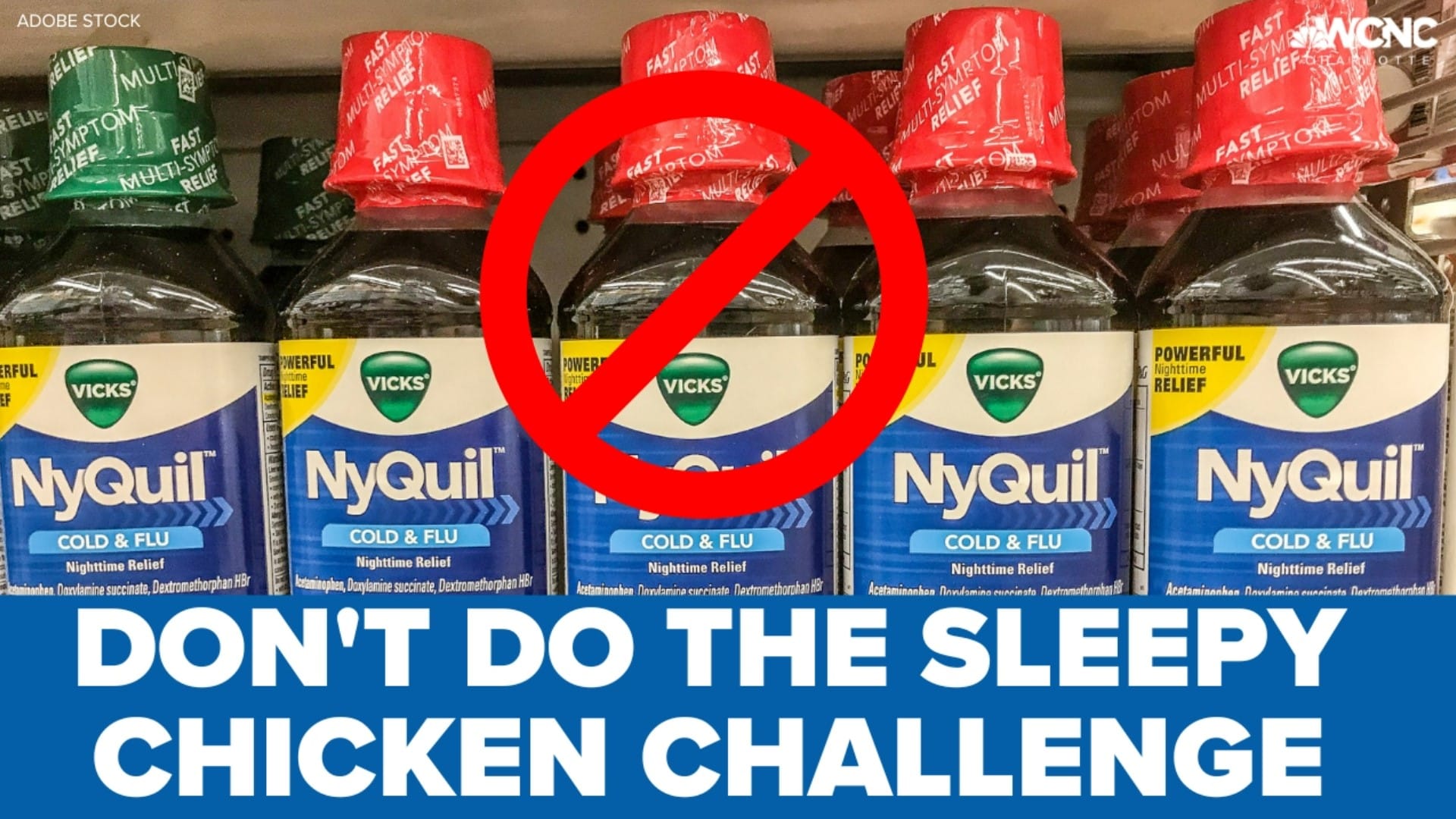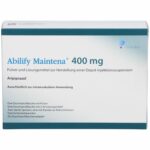If you’ve ever relied on NyQuil to combat a nasty cold or flu, you’ve likely experienced its most notorious side effect: intense drowsiness. But why does this over-the-counter remedy leave you feeling like you could sleep for a week?
Unmasking the Sandman: The Science of NyQuil’s Sleep-Inducing Effects
The secret to NyQuil’s sleep-inducing superpowers lies within its unique blend of ingredients, specifically the antihistamine doxylamine succinate. While you might associate antihistamines with allergy relief, they also have a knack for triggering drowsiness. But how exactly does this work?
Let’s break it down:
- Histamine’s Role: Our brains contain histamine receptors, which play a critical role in regulating our sleep-wake cycle. When histamine binds to these receptors, it promotes wakefulness and alertness.
- Doxylamine Succinate Steps In: Enter doxylamine succinate, which acts like a key fitting into a lock – it binds to and blocks those histamine receptors. By blocking histamine’s effects, doxylamine succinate essentially flips the “off” switch on your brain’s wakefulness signals, leaving you feeling drowsy.
- More Than Just Drowsiness: While doxylamine succinate is the primary culprit behind NyQuil’s sleep-inducing effects, it’s not alone. The formula also includes other ingredients, such as dextromethorphan, a cough suppressant. While dextromethorphan’s main job is to quiet your cough, it can also contribute to drowsiness in some individuals.
Beyond Drowsiness: NyQuil’s Multi-Symptom Relief
NyQuil’s ingredient cocktail isn’t just about knocking you out; it’s about providing comprehensive relief from your cold or flu symptoms. By tackling congestion, aches, and coughs, NyQuil helps create a more comfortable environment conducive to sleep. Think of it as a multi-pronged approach to helping you feel better and get some much-needed rest.
However, while a good night’s sleep is essential for recovery, the drowsiness caused by NyQuil isn’t without its potential drawbacks.
Proceed with Caution: The Downside of Sleepiness
- Lingering Grogginess: That sluggish feeling that can persist long after you wake up? That’s a common side effect of NyQuil. This drowsiness can interfere with your daily activities and make it challenging to function at your best.
- Developing a Tolerance: Using NyQuil frequently as a sleep aid can lead to your body becoming accustomed to its effects. You might find yourself needing higher doses to achieve the same level of drowsiness, potentially increasing the risk of side effects.
- Rebound Insomnia: In some cases, relying heavily on NyQuil for sleep can backfire. When you stop taking it, your brain might “rebound” by producing even more histamine, making it harder to fall asleep without the medication.
NyQuil vs. Dedicated Sleep Aids: What’s the Difference?
If doxylamine succinate is so effective at inducing sleep, why not just use a dedicated sleep aid? While NyQuil does contain this same ingredient, it’s crucial to understand that it’s designed primarily for short-term relief from cold and flu symptoms. Over-the-counter sleep aids, on the other hand, typically contain a single active ingredient (often an antihistamine like doxylamine succinate or diphenhydramine) and are intended for short-term relief from occasional sleeplessness.
The key takeaway is that neither NyQuil nor dedicated sleep aids are ideal long-term solutions for chronic sleep problems.
How Long Does NyQuil’s Drowsiness Last?
You took some NyQuil to fight off a nasty cold, and now you’re feeling incredibly drowsy. No surprise there! NyQuil is famous for its ability to induce sleep.
Most people start to feel the drowsy effects of NyQuil about 30 minutes after taking it. The drowsiness typically lasts for 4 to 6 hours, but this can vary depending on several factors:
- Metabolism: If your body processes medications quickly, you might experience a shorter duration of drowsiness.
- Dosage: Taking a higher dose of NyQuil will likely prolong the drowsy effects.
- Age: Older adults may metabolize medications more slowly, resulting in longer-lasting drowsiness.
- Other Medications: If you’re taking other medications that also cause drowsiness, the effects of NyQuil might be amplified.
Outsmarting the NyQuil Sleepies: Tips for Minimizing Drowsiness
- Strategic Timing: Take NyQuil right before you plan to go to bed. This will help ensure that the peak drowsy effects coincide with your bedtime.
- Hydration is Key: Make sure you’re drinking plenty of fluids. Staying hydrated can help your body metabolize the medication more efficiently.
- Skip the Stimulants: Avoid caffeine and alcohol before bed, as these substances can interfere with your sleep cycle and potentially worsen drowsiness.
- Consult Your Doctor: If you experience persistent drowsiness from NyQuil that interferes with your daily life, reach out to your doctor. They can help determine if there are any underlying issues contributing to your drowsiness or if alternative medications might be more suitable.
Does the Alcohol in NyQuil Make You Sleepy?
While NyQuil does contain a small amount of alcohol (typically around 10%, which is similar to a weak beer), it’s not the primary driver of its sleep-inducing effects. That honor goes to our friend, doxylamine succinate.
Here’s why the alcohol content in NyQuil is unlikely to be the main culprit behind your drowsiness:
- Relatively Low Concentration: The amount of alcohol in a standard dose of NyQuil is relatively small. You’d likely get a more pronounced drowsy effect from consuming a glass of wine or a beer.
- Doxylamine Succinate’s Potency: Doxylamine succinate is a potent antihistamine known for its ability to induce drowsiness. Its effects on histamine receptors in the brain far outweigh the sedative effects of the small amount of alcohol present in NyQuil.
Alcohol & NyQuil – A Risky Cocktail?
While the alcohol content in NyQuil might not be significant enough to make you sleepy on its own, it’s crucial to avoid combining NyQuil with other substances that can cause drowsiness, including alcohol. Mixing NyQuil with alcohol or other sedatives can intensify drowsiness and lead to potentially dangerous side effects, including:
- Excessive Drowsiness: This can impair your judgment, coordination, and reaction time, increasing the risk of accidents or injuries.
- Respiratory Depression: In severe cases, mixing alcohol with NyQuil can suppress the central nervous system, leading to slowed breathing and potentially life-threatening complications.
Beyond NyQuil: Safer Alternatives for Sound Sleep
If you’re struggling to get a good night’s sleep regularly, it’s essential to address the root causes rather than relying on NyQuil as a long-term solution. Here are some healthier alternatives to explore:
- Establish a Regular Sleep Schedule: Going to bed and waking up around the same time each day, even on weekends, helps regulate your body’s natural sleep-wake cycle, promoting better sleep.
- Create a Relaxing Bedtime Routine: Winding down an hour or two before bed with relaxing activities like taking a warm bath, reading a book, or listening to calming music can signal to your body that it’s time to sleep.
- Optimize Your Sleep Environment: Ensure your bedroom is dark, quiet, and cool for optimal sleep. Consider using blackout curtains, earplugs, or a white noise machine to minimize distractions.
- Cognitive Behavioral Therapy for Insomnia (CBT-I): This type of therapy helps you identify and change thoughts and behaviors that interfere with sleep, providing long-term relief from insomnia.
- Other Over-the-Counter Sleep Aids: If you’re looking for a short-term solution for occasional sleeplessness, your doctor or pharmacist might recommend other over-the-counter sleep aids that contain different active ingredients.
If you’re concerned about your sleep or experience persistent sleep difficulties, it’s essential to consult with your doctor to rule out any underlying medical conditions and discuss the most appropriate treatment options for you.
The Bottom Line: NyQuil, Sleep, and Your Health
NyQuil can be a lifesaver when you’re battling a nasty cold or the flu, thanks in part to its ability to induce sleep and provide some much-needed rest. However, it’s essential to remember that NyQuil is designed for short-term use and is not a sustainable solution for chronic sleep problems.
If you’re struggling with sleep, talk to your doctor. They can help you determine the underlying causes of your sleep issues and recommend the safest and most effective treatment options. Prioritizing healthy sleep habits, creating a conducive sleep environment, and seeking professional guidance are crucial steps toward achieving restful sleep without relying on the potent drowsiness of NyQuil.
If you’re intrigued by the peculiar aroma emanating from your dog’s paws, you might want to investigate why do dogs feet smell like fritos. Or perhaps you’re curious about the fascinating behavior of lizards engaging in push-ups? Uncover the reasons why do lizards do push ups by following the link.
- Mastering Leader in Spanish: The Complete Guide - April 19, 2025
- Uncovering Surprising Parallels: England Size Compared to US States - April 19, 2025
- Old Mexico Map: Border Shifts 1821-1857 - April 19, 2025
















